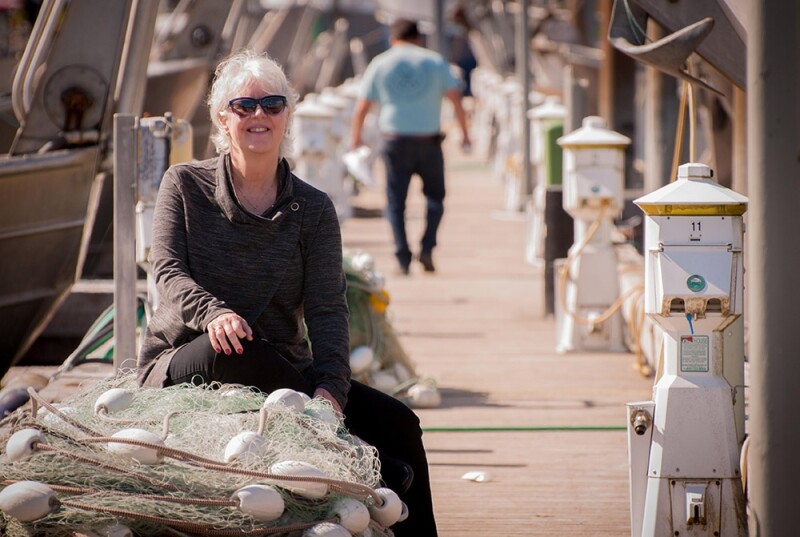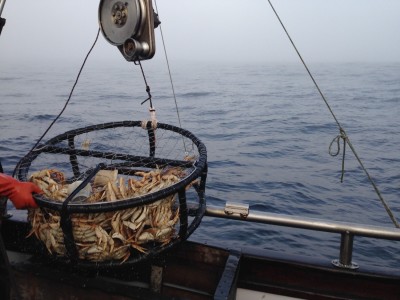Alaska’s commercial fishing industry is facing a perfect storm of poor markets, low prices, and rising barriers of entry, but Rep. Louise Stutes says she’s not backing down.
As chair of the House of Fisheries Committee and a longtime advocate for working waterfronts, Stutes is pushing a slate of legislative efforts aimed at easing the burden on fishermen and processors alike, from expanding tax credits for value-added products to opening doors for insurance co-ops tailored to local fleets. “Our fisheries are in a tough spot right now,” Stutes wrote in a March update to her constituents, “but I am dedicated to pursuing policy that will lower the barried of entry into fisheries and increase state support for our commercial fleet.”
Read Rep. Stutes' letter here:
Dear Friends and Neighbors,
I hope this update finds you well and in good spirits.
First, let me say that I am proud to, once again, be part of a team in the House that will advocate for funding and policy that support our fisheries, the Alaska Marine Highway System, K-12 education, and other essential services that Cordova relies on. I am pleased to be the Chair of House Rules Committee, which is a key member of House Leadership.
More importantly, however, I am chairing the Fisheries Committee again. The commercial fishing industry is at a critical juncture with poor market conditions and prices, fluctuating returns and biomass, as well as a high barrier of entry for young folks looking to make the leap from deckhand to skipper. Our fisheries are in a tough spot right now, but I am dedicated to pursuing policy that will lower the barrier of entry into fisheries and increase state support for our commercial fleet.
Over the past two months, my staff and I have been working on legislation pursuant to the recommendations of the Joint Legislative Task Force Evaluating Alaska’s Seafood Industry, of which I was a member. To view the final recommendations of the task force, please type bit.ly/4jGoewf into your web browser. Here are a few of the bills we have been working on.
HB 116 would allow for commercial fishermen to form insurance co-ops in Alaska without being considered an insurer under Title 21, the state’s insurance code. Rising costs and availability of insurance serve as a barrier to operating for many of our commercial fishermen. Underwriters have been raising premiums on individual vessels and have become increasingly selective of which vessels they insure. Insurance pooling can provide a more attractive, lower risk alternative for underwriters, as well as lower costs for our fishermen. Commercial fishermen owned insurance pools can also be specifically tailored to meet the needs of local fleets. HB 116 has moved swiftly through both of its committees of referral, and I expect to see it on the House floor soon. Please type bit.ly/4j9pt6J into your web browser to learn more about the bill.
HB 129 expands the Fisheries Product Development Tax Credit to incentivize value-added products from all species of fish, as well as other new technologies and processes that add to the quality and value of Alaska’s fish. During a time of historically poor market conditions and low value for our seafood, this bill seeks to incentivize processors to invest in technologies and equipment that add to the value of our seafood products, which in turn will provide a better bottom line for fishermen. This legislation moved from the Fisheries Committee last week and is currently in House Finance. Please type bit.ly/4lcpSGN into your web browser to learn more about the bill.
I have also reintroduced HB 33, which is a longstanding priority for the United Fishermen of Alaska and commercial fishermen across the state. Currently, members of the Board of Fisheries and Game who have a conflict of interest on a proposal must recuse themselves from the table and are unable to speak on the matter. HB 33 bill would simply allow the conflicted board member to speak during final deliberations on a proposal but would still preclude them from voting. Allowing members with expertise in particular fields to deliberate will assist the boards in making more informed decisions and lead to stronger resource management statewide. The bill has moved through both of its committees of referral and currently is awaiting calendaring on the House floor. Please type bit.ly/4co7Ld2 into your web browser to learn more about the bill.
Shifting gears, I know that education is a top priority for many of you. It is a top priority for me as well. HB 69 education funding: Increase BSA has moved quickly through the House and is currently being heard in the Senate Education Committee. Despite tight budget constraints, this legislation increases the Base Student Allocation by $1,000. It also adds provisions for open enrollment, reading proficiency grants to school districts, and bolsters the state’s charter school system. Please type bit.ly/4lcWLTI into your web browser to learn more about the bill.
The operating budget is currently being heard in the House Finance Committee and is expected to move to the House floor soon. Due to low revenue, increasing costs across the board, and uncertain federal funding, our fiscal reality this year is very constrained. We are doing our best to balance competing priorities and produce a budget that supports essential services, provides for a reasonable PFD, allows for an education increase, and doesn’t liquidate our remaining savings. Frankly, there are a lot of tough choices to make in the budgetary process this year. Alaska desperately needs a comprehensive fiscal plan that includes new revenue to stabilize our budget process. A fiscal plan has been a long time coming but, until it is addressed, our budget process will continue to be volatile from year-to-year. I will continue to engage with my colleagues to move the needle towards a solution.
Although there isn’t much money to go around, I am doggedly optimistic about the next few years. With our very own Gary Stevens as Senate president, two like-minded majorities in the House and Senate, as well as my position chairing the Rules and Fisheries committees, we are well situated to advocate for Cordova’s interests and prevent bad policy from moving forward.
On a final note, I would like to welcome Matt Gruening back to my office as my chief-of-staff after a two-year hiatus. Matt was my Fisheries Committee Aide for five years, owns a commercial fishing vessel, and has over 25 years of experience seining, longlining, and gillnetting in Alaska.
Please feel free to contact him anytime on fisheries, assistance with ever-changing federal programs, or any other issue. He can be contacted at matt.gruening@akleg.gov or at 907-465-3271.
Remember, I work for you. Please reach out to me on any issues important to you and your family.
Sincerely,
Rep. Louise Stutes
Proudly Serving Kodiak, Cordova, and Seward
Rep.Louise.Stutes@akleg.gov
907-465-2487







